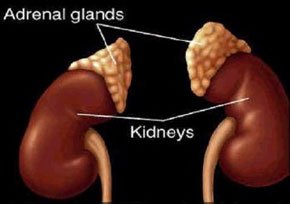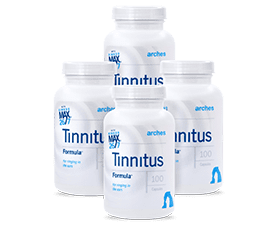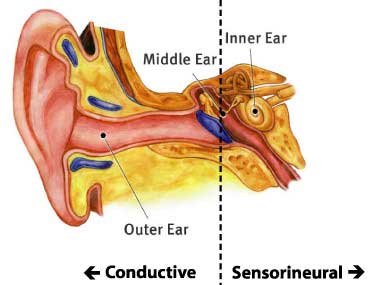By Barry Keate
Barry Keate, has lived with tinnitus over 40 years and has published 150+ research articles on numerous aspects of tinnitus. He is an expert on the condition and a well-known advocate for those with tinnitus.
Sudden Sensorineural Hearing Loss (SSHL) is defined as the sudden loss of hearing of at least 30 decibels occurring within a three day period. Often SSHL can occur within a few hours, several minutes or even instantaneously. People may notice a loud sound or a “pop” just before hearing disappears. Tinnitus is experienced in 70% and vertigo (dizziness) is experienced in 50%. The intensity of the vertigo often corresponds with the degree of hearing loss.
About one-third of people with SSHL discover their hearing loss when they wake up in the morning. They go to bed with normal hearing and, in the morning, realize they are deaf in one or both ears. Fortunately, SSHL only affects both ears about 2-4% of the time.
Previous treatment options included oral steroids, antiviral agents, and various medications. Unfortunately, there is no single treatment that has proven effective in reversing this type of hearing loss.
Now there is new evidence that a hormone produced by the adrenal glands, aldosterone (al-dos’-te-rone) may play a pivotal role in the prevention and treatment of SSHL and may also be helpful for people with presbycusis (age-related hearing loss).
Estimates of the overall incidence of SSHL range from 5 to 20 per 100,000 persons per year. There are many known causes of SSHL. These include ototoxic medications, Meniere’s disease, acoustic neuroma, head trauma, circulatory problems in the ear, immunological diseases and viral infections.
About one-third of people with unknown cause, or idiopathic, SSHL recover completely without any treatment. Another third recover some or most of their hearing with treatment. The remaining third don’t recover any hearing whether treated or not.
Prednisone Treatment
SSHL is considered by most physicians to be an autoimmune disease of the inner ear. According to this rationale, treatment should consist of oral corticosteroids, such as prednisone, which suppress the immune system. Treatment must begin within a few days of the hearing loss to be effective. This is the primary treatment therapy today even though it has not been satisfactorily proven in clinical trials. Prednisone also has a laundry list of side effects, including hypertension, ulcers, diabetes, cataracts, substantial weight gain, interference with healing, and many others.
Many physicians consider prednisone the “gold standard” for treating SSHL, often citing a 1980 study conducted by W.R. Wilson.1 However, a more recent overview of clinical studies published in the same journal as the Wilson study found that study had not been properly randomized, causing exaggerated results. Also the methodology included varying dosages and the time at which outcome was measured was not specified. Another study, properly randomized, used consistent dosages and standardized outcome results found no statistical difference between prednisone therapy and placebo.2
Interestingly, another study referenced in the same overview concerned the use of Ginkgo biloba extract for SSHL. German researchers used oral Ginkgo biloba on patients whose hearing loss occurred less than 10 days before they were included in the study. The researchers used two dosages of 24 mg and 240 mg daily and compared the groups in a randomized, double-blind study. They found that large majorities of both groups recovered completely but patients given the larger dose had less risk of not recovering well. They concluded, “A higher dosage of EGb 761 (Ginkgo biloba) appears to speed up and secure the recovery of SSHL patients, with a good chance that they will recover completely, even with little treatment.”3 Premium-grade Ginkgo biloba extract is one of the primary ingredients in Arches Tinnitus Relief Formula. The recommended daily dosage contains 480 mg of ginkgo extract.
Aldosterone Treatment
The aldosterone story begins with researchers at Oregon Hearing Research Center (OHSU) in Portland, OR. Doctors Trune, Kempton and Gross began a series of studies in 2001 that continues today. They knew that prednisone was the standard therapy for SSHL but no one knew the mechanism of action (how it works). Since it was known that high doses of prednisone can spill over from their intended purpose and activate aldosterone receptors, they decided to study whether the activation of aldosterone receptors was the mechanism that restored hearing in SSHL patients.
 Aldosterone is a mineralocorticoid steroid produced by the adrenal glands located next to the kidneys. The primary purpose of aldosterone is to regulate sodium and potassium metabolism in the kidneys. It also increases water retention. This increases blood volume and therefore, increases blood pressure. Aldosterone is necessary to keep blood pressure in a range that the heart can pump it and to regulate electrolytes in the bloodstream.
Aldosterone is a mineralocorticoid steroid produced by the adrenal glands located next to the kidneys. The primary purpose of aldosterone is to regulate sodium and potassium metabolism in the kidneys. It also increases water retention. This increases blood volume and therefore, increases blood pressure. Aldosterone is necessary to keep blood pressure in a range that the heart can pump it and to regulate electrolytes in the bloodstream.
The researchers at OHSU wanted to see if prednisone’s activation of aldosterone receptors, as opposed to suppression of the immune system, was actually causing the improvements in hearing when people used prednisone. To test their theory, they used spironolactone, a medication designed to block aldosterone, on autoimmune deafened mice while also giving them the more usual prednisone. They were able to electronically monitor Auditory Brainstem Response (ABR) before, during and after treatment, which provided data on hearing loss. They found that prednisone no longer had any hearing preserving effects. This led them to hypothesize that the real solution to so-called “autoimmune” hearing loss might come from increasing levels of aldosterone and not by suppressing the immune system. 4, 5
Next they compared the effects of aldosterone and prednisone in animals with autoimmune hearing loss. They found aldosterone to be more effective than prednisone, leading them to conclude that what had been previously believed to be autoimmune hearing loss might not be autoimmune after all, since aldosterone has no immune suppressing effect. 6, 7
The Story of Tom
Enter Jonathan V. Wright, MD, of the Tahoma Clinic in Renton, WA. Dr. Wright has been practicing natural and nutritional medicine since 1973 and is the author of several books on nutritional therapy and regular columns in Prevention and Let’s Live magazines. He published an article in the Townsend Letter for Doctors and Patients in January 2007 called “Take control of your hearing loss before it’s too late”. 8
Dr. Wright had a patient he refers to as “Tom”. Tom experienced unilateral SSHL in his right ear a year previously. This was long past the time SSHL can be successfully treated. Tom had seen two specialists but neither offered any therapy due to the time interval. Dr. Wright was treating Tom for allergies and low testosterone at the time.
Six months later, Tom had a serious setback and experienced sudden hearing loss in his left ear, as well. Since it was still widely believed that SSHL was autoimmune in nature, one of his doctors immediately put him on high-dose prednisone (80 mg daily). A month later, Tom reported to Dr. Wright that the prednisone had worked and the hearing in his left hear had returned to its previous level. He had also been able to reduce his dosage of prednisone to 10 mg daily.
It was Tom who brought to Dr. Wright’s attention the clinical studies discussed above. He also found a paper on using nystatin for candida, the common fungal pathogen in people with SSHL. 9
Dr. Wright measured Tom’s aldosterone levels and found them to be very low. A first test measured 4.7 micrograms and a second test measured 3.6 micrograms. Normal aldosterone levels range from 6 to 25 micrograms. Dr. Wright decided to try bio-identical aldosterone in Toms’ case, supplemented with nystatin. This was an easy decision because aldosterone is a natural hormone, necessary for life, and bio-identical hormones have no more side effects than the normally produced ones.
Bio-identical aldosterone is very difficult to obtain in the US so Dr. Wright enlisted the aid of a Canadian compounding pharmacy to supply it. He put Tom on two 125 microgram capsules daily. To monitor the safety of the therapy, Dr. Wright checked Tom’s serum electrolyte levels (potassium, sodium and chloride) monthly. He began taking aldosterone and nystatin as he tapered off the prednisone.
After a few weeks, Tom had stopped using prednisone entirely. He remained on aldosterone and nystatin and the hearing in his left ear remained normal. He decided to stop taking them at one point but within 10 days his hearing began to fail again. He restarted the aldosterone and his hearing returned to normal.
Dr. Wright monitored Tom’s aldosterone levels, which increased to 15.8 micrograms after two months and 35 micrograms after 6 months. Since the normal range is between 6 and 25 micrograms, Dr. Wright then lowered Tom’s aldosterone dosage to a single 125 microgram capsule daily. After two years, Tom’s hearing in the left ear remains normal.
Aldosterone may play a preventive role in age-related hearing loss (presbycusis) as well. In 2005, researchers reported a correlation between low blood levels of aldosterone and hearing loss in older individuals. 10
In the study, 47 healthy men and women between 58 and 84 years old were given several types of hearing tests in addition to having their aldosterone blood levels measured. Individuals with severe hearing loss had approximately half as much aldosterone as those with normal hearing, a highly significant difference. The researchers concluded “aldosterone hormone may have a protective effect on hearing in old age.”
Bio-identical aldosterone is very difficult to find in the US even through compounding pharmacies. The FDA has outlawed the use of bio-identical aldosterone even though it is a natural molecule found in everyone’s body. This is highly unusual as the FDA allows other natural hormones to be sold in bio-identical form.
One possible explanation for this is there is a synthetic analog of aldosterone on the market. The drug is called fludrocortisone, made by Barr Industries under the brand name Florinef. Because fludrocortisone is synthetic, it is treated by the body as an invasive molecule, which induces many of the same side effects that occur with prednisone. It has not been tested for SSHL or presbycusis. This would not be the first time the FDA has banned a natural substance to protect the profits of a pharmaceutical company.
Aldosterone can be obtained from a Canadian compounding pharmacy with a US doctor’s prescription and can be shipped directly from Canada.
References
- 1 – Wilson WR, Byl FM, Laird N. The efficacy of steroids in the treatment of sudden idiopathic hearing loss. Arch Otolaryngol. 1980; 106: 772-776.
- 2 – Conlin AE, Ornes LS. Treatment of Sudden Sensorineural Hearing Loss. Arch Otolaryngol. 2007: 133(6): 573-581.
- 3 – Burschka MA, Hassan HA, Reineke T, van Bebber L, Caird DM, Mosges R. Effect of treatment with Ginkgo biloba extract EGb 761 (oral) on unilateral idiopathic sudden hearing loss in a prospective randomized double-blind study of 106 outpatients. Eur Arch Otorhinilaryngol. 2001 Jul; 258(5): 213-9.
- 4 – Gross ND, Kempton JB, Trune DR. Spironolactone blocks glucocorticoid mediated hearing preservation in autoimmune mice. Laryngoscope, 2002 Feb; 112(2): 298-303.
- 5 – Trune DR, Kempton JB, Aldosterone and prednisone control of cochlear function in MRL/MpJ-Fas(1pr) autoimmune mice. Hear Res. 2001 May; 155(1-2): 9-20.
- 6 – Trune DR, Kempton JB, Kessi M. Aldosterone (mineralocorticoid) equivalent to prednisolone (glucocorticoid) in reversing hearing loss in MRL/MpJ-Fas1pr autoimmune mice. Laryngoscope. 2000 Nov: 110(11): 1902-6.
- 7 – Trune DR, Kempton JB, Gross ND. Mineralocorticoid receptor mediates glucocorticoid treatment effects in the autoimmune mouse ear. Hear Res. 2006 Feb; 212(1-2): 22-32.
- 8 – http://findarticles.com/p/articles/mi_m0ISW/is_282/ai_n19170311.
- 9 – Nelson RA. Successful treatment of immune inner ear symptoms with nystatin: Preliminary findings. Available at http://www.mwilliamson.com/hearingloss.htm.
- 10 – Tadros SF, Frisina ST, Mapes F, Frisina DR, Frisina RD. Higher serum aldosterone correlates with lower hearing thresholds: A possible protective hormone against presbycusis. Hear Res. 2005 Nov; 209(1-2): 10-8.
Get Free Shipping!
Order now and get free shipping on either the Tinnitus Starter Kit or Combo Pack. Try the doctor recommended products with clinically proven ingredients for tinnitus. No coupon code required.


